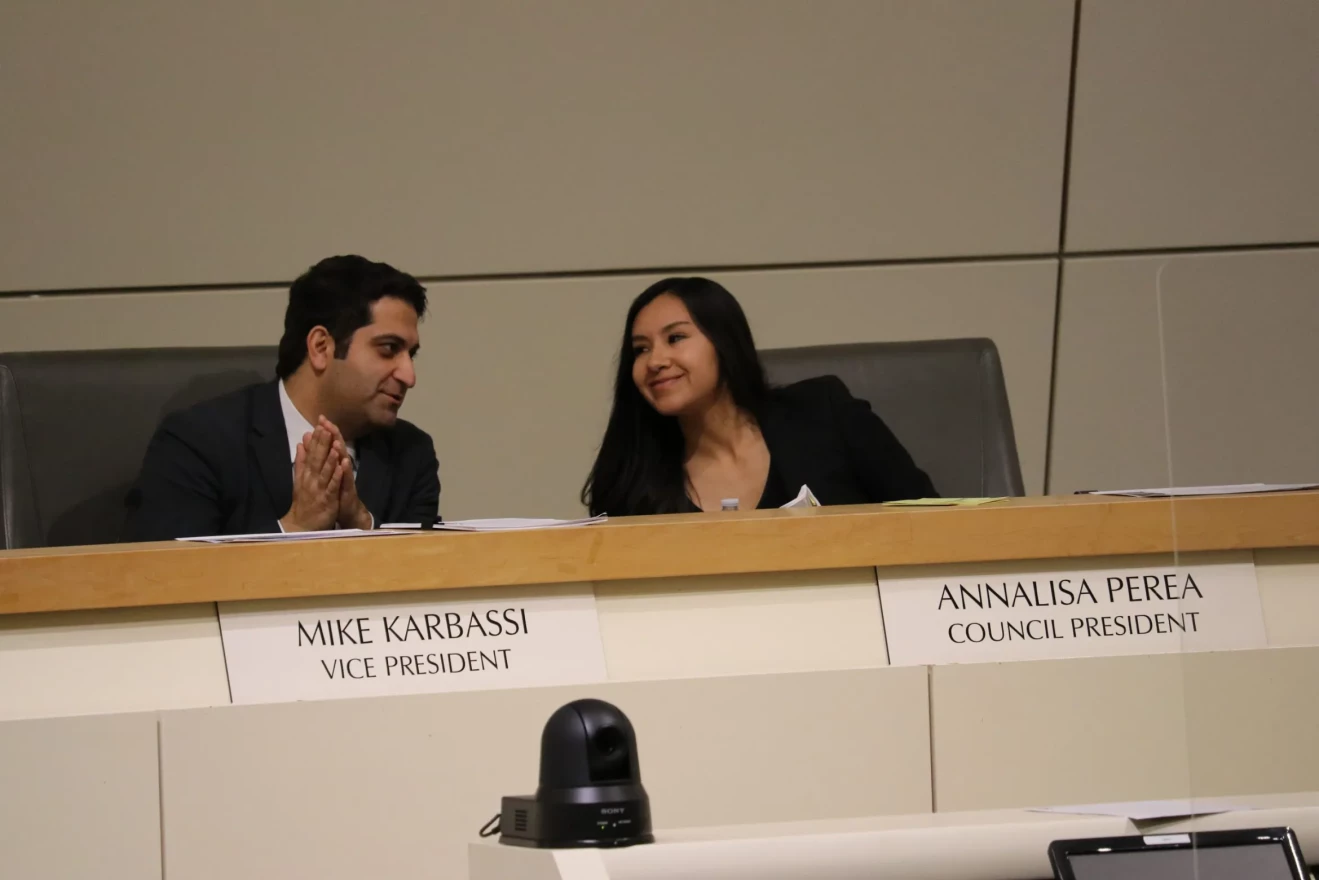The Fresno City Council has a new way to meet privately to discuss city matters.
The council also quietly disbanded at least 10 city council committees that met privately to discuss city business for years, months after a Fresnoland investigation.
In a unanimous Feb. 22 vote, the council adopted a method for councilmembers to create “informal working groups” that skirts all requirements for documentation.
During last Thursday’s city council meeting, none of the councilmembers questioned how the Fresno working groups would work. Fresno City Attorney Andrew Janz and Council President Annalisa Perea did not respond to questions from Fresnoland.
However, Janz spoke to The Fresno Bee Editorial Board, confirming an “informal working group” could be composed of up to three councilmembers to discuss city matters — similar to the city council’s old budget committee for the last five years.
The changes come amid a lawsuit over the City Council’s budget committee. Following a Fresnoland investigation last August, the ACLU of Northern California and the First Amendment Coalition sued the Fresno City Council for allegedly conducting public business in private meetings in violation of California’s Ralph M. Brown Act, the set of laws governing public meetings.
David Loy, an attorney with the First Amendment Coalition, said California’s open meeting laws could still apply — simply calling the committee a “working group” wouldn’t exempt it from the law.
“Whether they call it a working group, a bridge club or a sewing circle, it’s still in fact a standing body with continuing jurisdiction over city business,” Loy told Fresnoland. “If that is the case, then my position remains that that is still a body subject to the Brown Act — required to give notice of meetings, hold them in public and with agendas and so forth.”
Loy said the lawsuit against the City of Fresno over the city council’s budget committee is currently in the discovery phase. While he finds the city council’s proposed informal working group interesting, he said it does not materially change the existing issues.
“If a city or any local government could evade the Brown Act by simply relabeling the name of the body, then there wouldn't be a Brown Act,” Loy said. “What if you call the city council just an informal working group? You cannot evade the Brown Act by mere semantics.”
Council ends five-year practice after Fresnoland investigation
Councilmember Miguel Arias confirmed to Fresnoland that Perea, the City Council president, does not plan to convene a budget committee this year, ending a five-year practice following Fresnoland’s investigation.
But will the council convene an informal working group to hash out the budget?
“Not that anyone's indicated,” Arias said. “That doesn't mean that nobody will try.”
During the Thursday meeting, city staff read into the record the city council’s active committees, but the list did not include any of the council committees that Fresnoland revealed were meeting privately for years.
City records show that Councilmember Tyler Maxwell quietly dissolved all 10 subcommittees last October when he was still council president.
Additionally, the Fresno City Attorney’s office said it either had no responsive records or rejected public records requests from Fresnoland for meeting agendas of the Lobbyist, Measure P and PRAC, Transportation and Budget subcommittees. The city did provide agendas for the housing and homelessness subcommittee.
When ad-hoc committees become routine, it’s no longer ad-hoc
The Fresno City Council has defended keeping the majority of its committees private by pointing to how they are temporary, or “ad-hoc,” and meant to accomplish a very specific task before dissolving.
However, that’s not the case with all of them. The Cannabis Ad-Hoc Subcommittee was first formed in 2014. For nine years, all its meetings were held behind closed doors. It’s a similar case with the Transportation Subcommittee, which was also created in 2014 and none of its meetings were held in public.
Minutes for a Fresno City Council meeting in March 2014 show the council creating the Cannabis Ad Hoc Committee. Many of the city council’s committees were created to craft policy swiftly, Arias said. For example, the council’s housing and homelessness subcommittee was formed in 2019 after the city received about $3 million in state funding to address homelessness.
Arias, who joined the city council in 2018, formed the subcommittee alongside councilmembers Luis Chavez and Garry Bredefeld to hash out how the city would spend the millions in state funds. However, even after completing that task, the committee remained at Fresno City Hall.
“So essentially, it became the working group for developing the city's strategy to housing the homeless,” Arias said.
Minutes for a Fresno City Council meeting on Jan. 17, 2019 show the council creating a committee on housing and homelessness. After creating a plan for how to spend the state funds, Arias said the subcommittee was behind drafting the plan for the city’s Project Off-Ramp, which Mayor Jerry Dyer has championed as a policy success during his administration in addressing homelessness near freeways.
“Jerry (Dyer) named it, he didn’t develop it,” Arias said. “That was the subcommittee.”
Chris Micheli, a law professor at the McGeorge School of Law in Sacramento, said a temporary committee needs to dissolve after completing its task, per the Brown Act. It cannot turn into an all-encompassing body charged with drafting policy on a broad issue and continue meeting in private.
“If you're going to create an ad-hoc committee and then keep it in continual existence, it’s gotta abide by the rules as any other full-fledged committee or local government entity,” Micheli told Fresnoland. “That's what the Brown Act requires.”
This article first appeared on Fresnoland and is republished here under a Creative Commons license.

